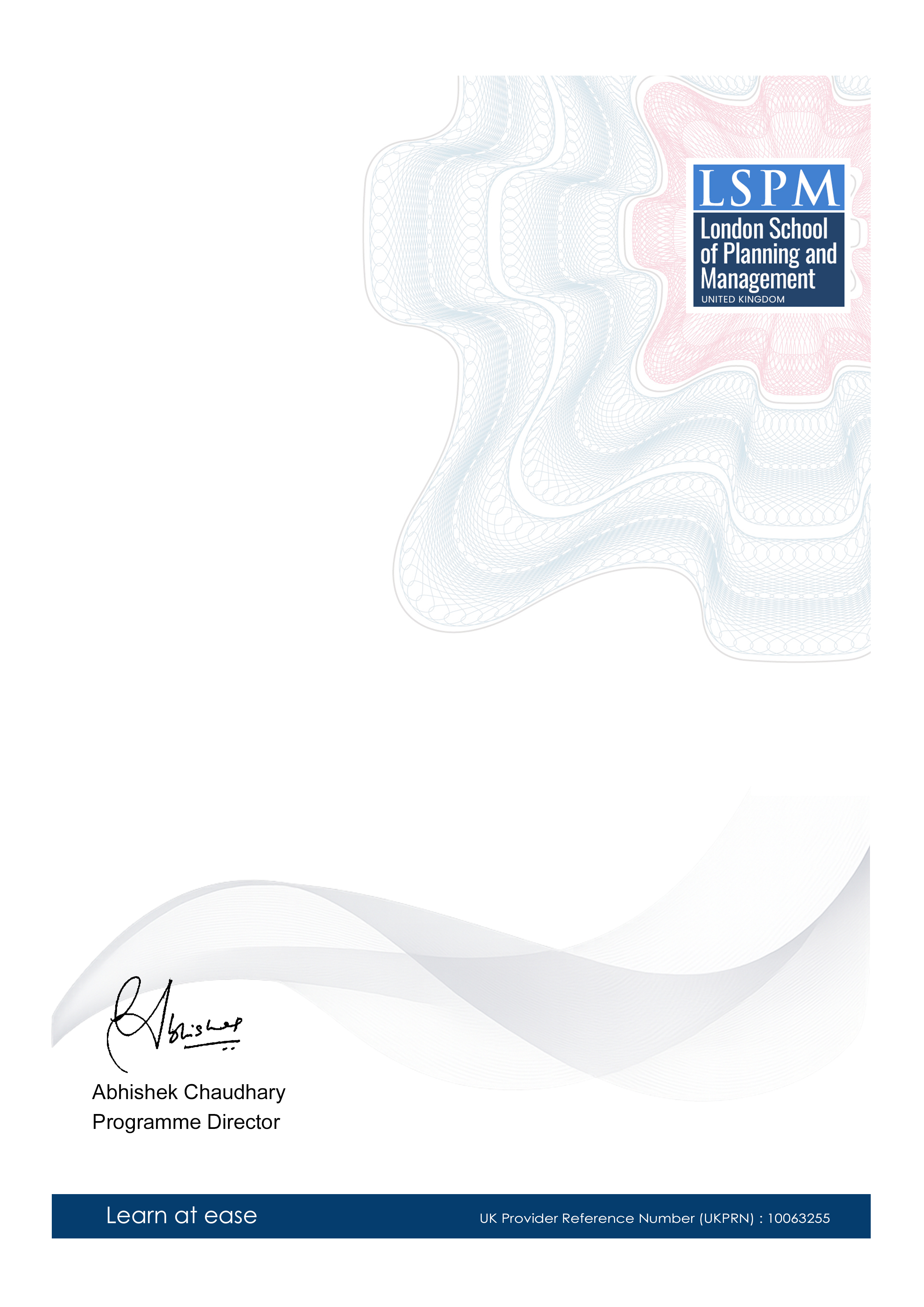Advanced Certificate in Sustainable Fisheries Science
-- viewing nowThe Advanced Certificate in Sustainable Fisheries Science is a comprehensive course designed to equip learners with the essential skills necessary to excel in the fisheries industry. This course emphasizes the importance of sustainable fishing practices, biodiversity conservation, and the management of marine resources, making it highly relevant in today's environmentally-conscious world.
2,796+
Students enrolled
GBP £ 149
GBP £ 215
Save 44% with our special offer
About this course
100% online
Learn from anywhere
Shareable certificate
Add to your LinkedIn profile
2 months to complete
at 2-3 hours a week
Start anytime
No waiting period
Course details
• Advanced Fisheries Biology: This unit will cover the biology of fish and fisheries, including population dynamics, life history strategies, and stock assessment methods.
• Sustainable Fishing Practices: This unit will focus on the principles of sustainable fishing, including the management of fish stocks, bycatch reduction, and the use of selective fishing gear.
• Fisheries Ecology: This unit will examine the ecological relationships between fish and their environment, including the impacts of climate change, habitat modification, and invasive species on fisheries.
• Aquaculture and Fish Farming: This unit will explore the science and technology of aquaculture and fish farming, including the design and management of recirculating aquaculture systems (RAS) and the production of genetically improved fish stocks.
• Fisheries Policy and Governance: This unit will examine the legal and policy frameworks governing fisheries, including the role of international agreements, national legislation, and local regulations in promoting sustainable fisheries.
• Fisheries Economics: This unit will analyze the economics of fisheries, including the allocation and pricing of fishing rights, the economic impact of fisheries on local communities, and the role of market-based instruments in promoting sustainable fisheries.
• Fisheries Technology: This unit will cover the latest technologies used in fisheries, including remote sensing, acoustic tracking, and genomic analysis, and their application in stock assessment, bycatch reduction, and fisheries management.
• Fisheries and Climate Change: This unit will examine the impacts of climate change on fisheries, including ocean acidification, sea level rise, and changing ocean currents, and the adaptation strategies that can be used to mitigate these impacts.
• Fisheries and Food Security: This unit will explore the role of fisheries in global food security, including the contribution of fisheries to nutritional outcomes, the challenges of ensuring sustainable fish supplies, and the potential of fisheries to alleviate poverty and promote economic development.
Career path
Entry requirements
- Basic understanding of the subject matter
- Proficiency in English language
- Computer and internet access
- Basic computer skills
- Dedication to complete the course
No prior formal qualifications required. Course designed for accessibility.
Course status
This course provides practical knowledge and skills for professional development. It is:
- Not accredited by a recognized body
- Not regulated by an authorized institution
- Complementary to formal qualifications
You'll receive a certificate of completion upon successfully finishing the course.
Why people choose us for their career
Loading reviews...
Frequently Asked Questions
Course fee
- 3-4 hours per week
- Early certificate delivery
- Open enrollment - start anytime
- 2-3 hours per week
- Regular certificate delivery
- Open enrollment - start anytime
- Full course access
- Digital certificate
- Course materials
Get course information
Earn a career certificate

